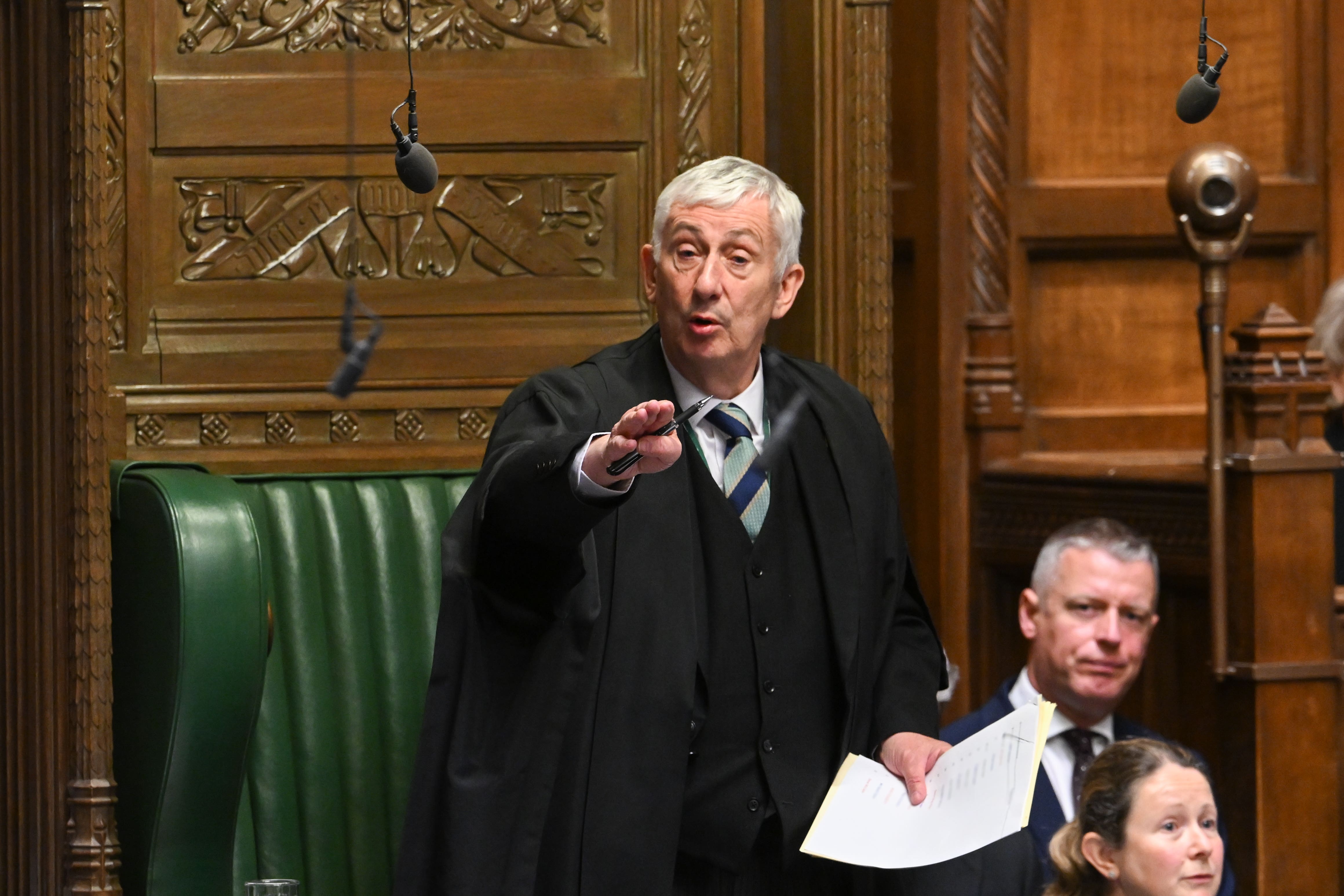Speaker still under pressure as almost 70 MPs sign call for him to quit
Some Conservatives have sought to blame Sir Keir Starmer rather than Sir Lindsay Hoyle for chaotic scenes in the Commons on Wednesday.

Your support helps us to tell the story
From reproductive rights to climate change to Big Tech, The Independent is on the ground when the story is developing. Whether it's investigating the financials of Elon Musk's pro-Trump PAC or producing our latest documentary, 'The A Word', which shines a light on the American women fighting for reproductive rights, we know how important it is to parse out the facts from the messaging.
At such a critical moment in US history, we need reporters on the ground. Your donation allows us to keep sending journalists to speak to both sides of the story.
The Independent is trusted by Americans across the entire political spectrum. And unlike many other quality news outlets, we choose not to lock Americans out of our reporting and analysis with paywalls. We believe quality journalism should be available to everyone, paid for by those who can afford it.
Your support makes all the difference.Sir Lindsay Hoyle is facing continued pressure to step down as Commons Speaker after almost 70 MPs called for him to go.
Some 67 MPs, more than a tenth of the Commons, have signed a motion proposed by senior Conservative William Wragg expressing no confidence in the Speaker over his handling of the Gaza ceasefire debate on Wednesday.
Sir Lindsay has apologised for his handling of the debate and offered an emergency debate on the SNP’s motion calling for a ceasefire.
But criticism from SNP and Tory MPs has continued, with the Prime Minister describing his decisions as “very concerning”.
If further signatures are added to Mr Wragg’s motion, Sir Lindsey will face additional pressure to go.
There is no formal procedure for removing a speaker, but in 2009 Michael Martin resigned from the post after it became clear he had lost the confidence of MPs across the Commons.
Sir Lindsay’s explanation that he was motivated by concern about MPs’ security has sparked further debate about the impact of threats and intimidation around the work of Parliament.
Rishi Sunak said on Thursday: “Parliament is an important place for us to have these debates. And just because some people may want to stifle that with intimidation or aggressive behaviour, we should not bend to that and change how Parliament works.
“That’s a very slippery slope.”
His former home secretary, Suella Braverman, went further, writing in Friday’s Daily Telegraph that the events of Wednesday had “undermined the integrity of Parliament”, adding: “The truth is that the Islamists, the extremists and the antisemites are in charge now.”
She added: “I may have been sacked because I spoke out against the appeasement of Islamists, but I would do it again because we need to wake up to what we are sleep-walking into: a ghettoised society where free expression and British values are diluted. Where sharia law, the Islamist mob and antisemites take over communities.
“We need to overcome the fear of being labelled Islamophobic and speak truthfully.”
Some Conservatives have been reluctant to blame the Speaker for Wednesday’s events, instead pointing the finger at Sir Keir Starmer.
Ms Braverman said the Labour leader had “bowed to the mob” and made a “grubby backroom deal”.
She said: “The mask has slipped: in hock to the Islamists, he is responsible for one of the most shameful days of our democracy.
“By effectively taking the Speaker hostage, he brought Parliament into disrepute. This is the behaviour of tyrants. Just imagine what Starmer would do as Prime Minister.”
Appearing on Newsnight, former attorney general Sir Geoffrey Cox, also sought to blame Sir Keir, accusing him of a “surrender to tyranny and intolerance” by arguing that the Speaker should break with precedent due to the risks to MPs’ safety.
Sir Keir denied threatening the Speaker, insisting he “simply urged” him to have “the broadest possible debate” by putting a number of options in front of MPs.